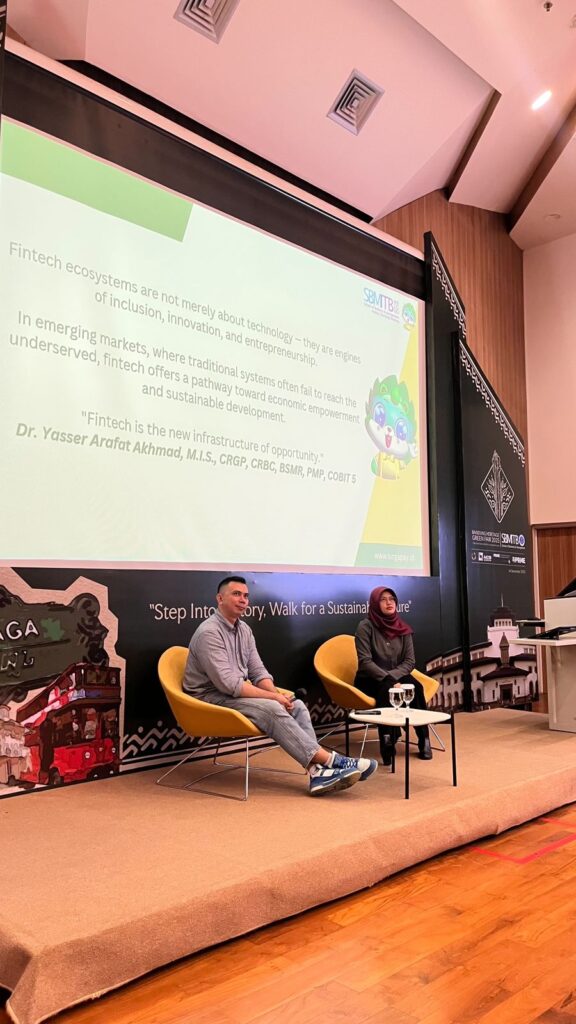Over the past decade, advances in mobile technology, the growth of venture capital, and the emergence of fintech innovation have created a dynamic new ecosystem that demands strong governance. Every startup, investor, and financial institution must operate within an interconnected regulatory framework.

This point bwas stated by Singapay President Director and CEO Yasser Arafat Akhmad during a public lecture titled “The Role of Fintech Ecosystems in Driving Entrepreneurial Growth in Emerging Markets”, held at the Freeport Auditorium, SBM ITB (17/10).
In discussing fintech development, Yasser highlighted the importance of coordination with the Financial Services Authority (OJK) and Bank Indonesia (BI) through mechanisms such as regulatory sandboxes, API integration, and Know Your Business (KYB) verification.
According to Yasser, the 2025 Indonesian Payment System Blueprint (BSPI) defines the main direction of national financial digitalization through five key pillars: digital inclusion, interoperability, security, efficiency, and integration. Together, these elements aim to position Indonesia as a leading hub for the digital economy in Southeast Asia.
He underscored that fintech companies are not merely an addition to the financial system but part of its foundation, ensuring innovation aligns with compliance.
“Fintech is not an additional service on the fringes of the economy,” he said. “It is the digital foundation that underpins today’s economic movement.”
Where infrastructure once referred to roads and ports, Yasser explained, it now includes data highways, payment gateways, and digital identity systems that connect businesses to markets and capital. Fintech’s real value, he added, lies in expanding economic access for communities previously excluded from formal financial services.
Digital transformation, Yasser continued, has shifted how opportunities are created. Entrepreneurial success now depends less on physical assets and more on the ability to leverage platforms that integrate payments, logistics, and data. Fintech serves as a bridge between innovation and inclusion, linking the informal economy to the formal system with greater speed and efficiency.
However, Yasser cautioned that digital progress brings new risks. Regulatory complexity, data security threats, uneven access to financing beyond Java, and a shortage of skilled digital talent remain major challenges. Yet he viewed these issues as indicators of the industry’s
“Innovation without regulation leads to chaos, while regulation without innovation leads to stagnation,” he asserted, emphasizing the need to balance experimentation with the responsibility to maintain public trust.
He stressed that trust is the cornerstone of the digital economy. In an era driven by code and connectivity, trust is built not through face-to-face interaction but through consistency, transparency, and regulatory compliance. Collaboration among fintech companies, regulators, and the public, he said, is vital for sustainable digital transformation.
Yasser also noted Indonesia’s participation in Project Nexus, a cross-border initiative led by the Bank for International Settlements (BIS), as a significant step toward a more interconnected regional payment system. Cross-border interoperability, he believes, will be the next milestone for developing nations, advancing regional economic integration through
Yasser concluded that fintech is not merely an industry but a form of infrastructure that opens access and opportunity. Just as roads and ports once linked producers and markets, technology now connects communities to the global economy. Future growth, he said, will depend on a nation’s ability to build not only advanced digital systems but also collaboration, trust, and sound governance behind them.






